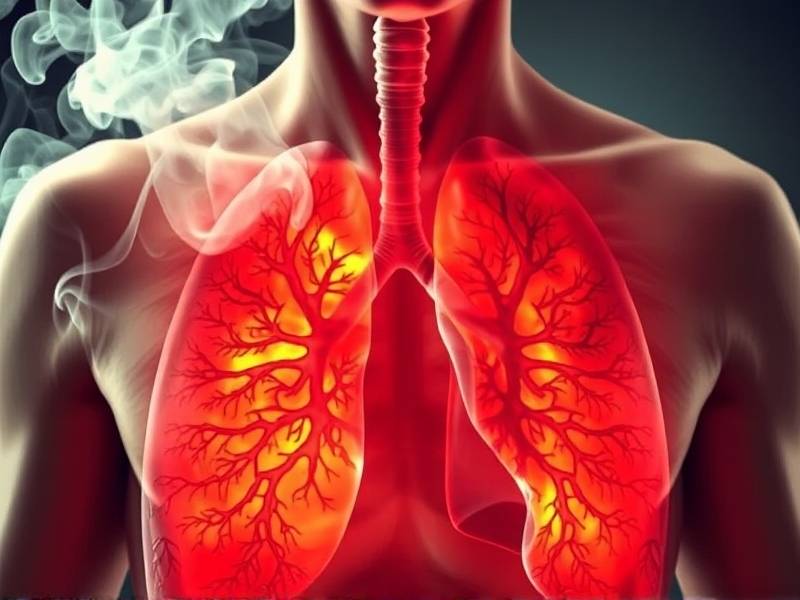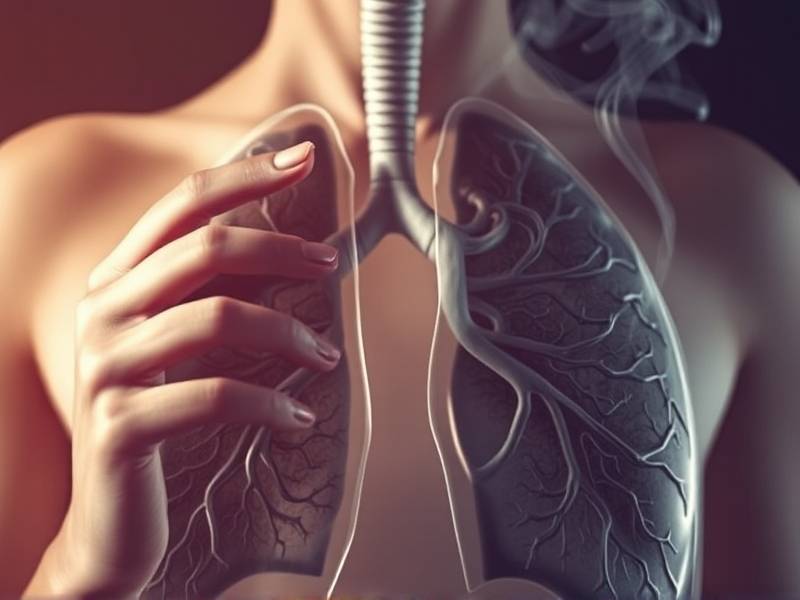What Happens to Your Lungs After You Quit Smoking?
The Transformation of Your Lungs Post-Quit Smoking: A Journey to Better Health
Introduction: Quitting smoking is a significant step towards improving one's health. While the benefits of quitting are numerous, many smokers are often curious about what happens to their lungs after they quit. This article delves into the transformative journey of your lungs post-quit smoking, offering insights into how your body can heal and rejuvenate over time.
The Immediate Impact

In the first few weeks after quitting, your body begins to rid itself of harmful chemicals and toxins from smoking. This initial phase is crucial as it sets the stage for long-term lung health. Within just 48 hours, your carbon monoxide levels drop significantly, allowing your blood to carry more oxygen.
A Month Onwards
After approximately one month of not smoking, you'll notice an improvement in lung function. The inflammation and cilia damage caused by smoking start to heal, enabling your lungs to clear out mucus and other debris more effectively. This can lead to an increase in lung capacity and a reduction in coughing.
The Year Mark

One year after quitting, the risk of heart disease starts to decline as your blood vessels begin to repair themselves. Your lungs continue their healing process, with a gradual decrease in the risk of chronic bronchitis and emphysema.
Long-Term Benefits
Over time, the benefits become even more pronounced:
- Five Years Later: The risk of stroke decreases significantly.
- Ten Years Later: The risk of lung cancer drops by half compared to continuing smokers.
- Fifteen Years Later: Your risk for many types of cancer continues to decrease.
How Your Lungs Heal
The healing process is gradual but remarkable. Here's a closer look at what happens:
- Cilia Repair: Cilia are tiny hair-like structures that line the airways in your lungs. They help sweep out mucus and dirt. Smoking damages these cilia, but they can repair themselves over time.
- Airway Inflammation Reduction: Chronic inflammation caused by smoking can lead to long-term damage. Quitting helps reduce this inflammation.
- Improved Oxygen Supply: With fewer toxins in your bloodstream, oxygen supply improves throughout your body.
- Cleansing Process: As cilia start functioning better, mucus and debris are cleared out more effectively.
Conclusion: The journey towards better lung health post-quit smoking is a testament to the resilience of the human body. While it may seem daunting at first, understanding how your lungs heal can provide motivation and hope for those looking to quit smoking for good.
Remember that every puff counts – both while you're still smoking and after you've quit. By taking control of your health today, you're investing in a healthier tomorrow for yourself and those around you.
